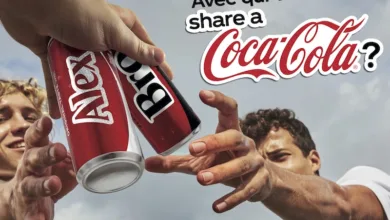The revenge of P2P
 I have a scoop for you, and it’s called P2P. It’s nothing new for those who work in technology, but, if you are a media executive or simply watch videos on the Web, it’s about to about to add some digital confusion to your life. Yes, I am talking about peer-to-peer, or, as many of us still think of it, pirate-to-pirate.
I have a scoop for you, and it’s called P2P. It’s nothing new for those who work in technology, but, if you are a media executive or simply watch videos on the Web, it’s about to about to add some digital confusion to your life. Yes, I am talking about peer-to-peer, or, as many of us still think of it, pirate-to-pirate.
Without getting into the details of a generally useful concept belonging to network architecture, let’s say that in the popular consciousness P2P is synonymous with illegal file sharing, from Napster and Kazaa to Limewire and Bittorrent. Media executives, most of whom are not digital natives, even if they do sleep with their Blackberries, tend to deal with digital concepts by filing them in their heads under simple headings, such as “P2P is BAD”.
In comes Joost (from the creators of Kazaa and Skype), Babelgum (backed by the founder of Fastweb) and even the Microsoft Windows Media “demo team” with their ubiquitous MIPTV suite at the Majestic in Cannes and never-ending efforts to convince media people that Microsoft is not evil.
They enter the already confused world of the media industry with a geeky determination, shining eyes and a new gospel to preach: “P2P is the new way to distribute content over the Internet”. It is implied – though never openly stated – that this new way is going to solve all the scary problems media industry has encountered on the Web.
In the case of Joost , the P2P Message enters on the wings of another Hype – sorry, I meant Skype – and manages to get CNN and Newsweek to announce months before the launch: “Move over YouTube”. The most remarkable thing about the CNN clip on Joost is that it contained next to zero facts about this new service, except for the news that it had made a deal with Viacom – and plenty of facts about YouTube and their current digital rights predicament.
It must have been shortly after the aforementioned CNN segment, that most media execs shifted certain concepts in their heads, filing YouTube under “BAD” and P2P, aka Joost, under “GOOD”. They followed by making distribution deals with the new crop of P2P platforms – which are in fact free to view over the Internet services — without even pausing to ask the question of how this was going to make them money.
I have heard various rights owners, who would shake with anger at the thought of YouTube, melt at the mention of Joost: “This service is amazing… the most innovative interface we have ever seen”. And finally, when pressured on how this was going to work economically, they would revert to one indisputable fact: “Joost founders have a proven record”. That they do. I love video-phoning my parents in Latvia for free. I love seeing start-ups being bought by eBay for billions. But how, pray tell, is this “proven record” better than that of YouTube?
Now let me explain to you what a p2p platform does in this new context: it makes your internet connection run faster, allowing files to stream at a better quality. That’s it. There is no other innovation to this new wave of video distribution platforms – they are simply running on a slightly faster Internet. Using this technology, new P2P platforms are planning to stream to our PC thousands of TV channels and content offers. Unless I miss something, this is what Internet does already, and with the ever-growing bandwidth this seems like a simple technical adjustment.
The innovation we truly need is a new way to architect non-linear digital programming – and in this respect Joost and other players are taking no chances. They are delivering traditional TV programs (with jump forward and back options) – and, I am not kidding, I read in Newsweek that this is an absolutely brilliant new approach.
There is a great irony in the fact that the founders of Kazaa have suddenly become the heroes of the media industry. Knowing how unjust and frightful this industry can be, I see Joost as a start-up version of the Count of Monte-Cristo, looking for – sorry, I have to do this — joostice. God bless them, but let’s just hope some truly new ideas won’t be smothered by the waves of hype.





